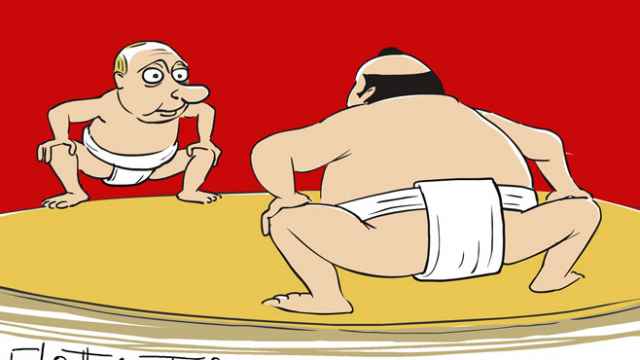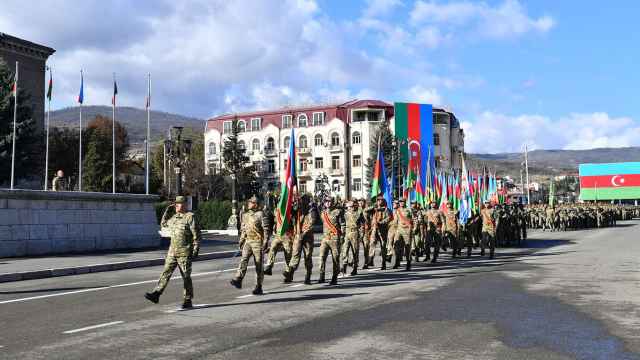There is a growing body of credible independent academic and journalistic research suggesting that foundations and nongovernmental organizations which promote democratic values in other countries do more to discredit than to strengthen their cause.
Such criticism comes in many forms. Some criticize the inherent cynicism of turning ideals into political technology. Some fault the arrogance of considering one society's norms to be universal. Some cite the historically cozy ties between such organizations and intelligence agencies. Some make the case that infiltrating "civil society" in other countries for perceived political gain is often both expensive and futile.
Among the 12 organizations on the so-called "stop-list" of undesirable NGOs recently created by the upper house of the Russian parliament, there are three categories. The first contains the pseudo-governmental groups — the International Republican Institute, the National Endowment for Democracy, the National Democratic Institute for International Affairs and Freedom House — which march in lockstep with the policies of their largest donor, the U.S. government. These are large and slow-moving game.
The second, and much-speculated-upon category is a group of smaller Ukrainian NGOs.
The third category is made up of the large and mostly privately funded organizations: namely, the Open Society Foundation (Soros foundation) and the Charles Stewart Mott Foundation. I find these to be the most interesting because they are the only ones on the list that at least claim to promote democracy both at home and abroad, a much rarer thing than you might think.
But here's the problem: While we might like to think that certain values are universal, our actions will never be perceived the same abroad as they are at home. Supporting an idea, a value, or an agenda in your own country is, by definition, not the same thing as supporting it in someone else's.
Here's why.
Let's imagine that you are outraged (as many Americans are) by our dysfunctional criminal justice system and its devastating effect on the black and the poor. Great news! The Open Society Foundation has grants available for work on this issue.
Now let's imagine that you also care about what's going on in other parts of the world. Imagine that like a significant number of your fellow citizens, you oppose the U.S. habit of supporting regime change, which often comes fast on the heels of our democracy promotion efforts.
While nothing about support for criminal justice reform and opposition to regime change should be incompatible, in practice you're going to have to make a trade-off. No, Soros' democracy-promoting initiatives abroad might not be dictated by the U.S., but they certainly do deserve a best supporting actor award.
You now see the contradiction of a foundation based in a particular country purporting to be transnational. What links advocacy at home and abroad is that both acts are inextricably political. An "open society" is a political objective, regardless of whether or not it is government funded, and regardless of whether or not it sounds nicer than a "closed society."
In practice, support for this particular brand of politics in both societies is too often a prerequisite for dialogue between societies. Even if Soros and others are, as they claim, pursuing the same agenda in the United States as they are in Russia, they reinforce a negative spiral of perceptions between Russia and the United States by encouraging cooperation between tiny slivers of the two societies that already agree with each other, while among the populations at large, Russians object in principle to American interference in their domestic politics, and Americans see this as an objection to the values themselves.
Russia's apprehension about foreign meddling is easy enough to understand. Neither the American exceptionalism of the pseudo-governmental foundations, nor the worldview of the private foundations are in any way consistent with Russia's interests as a sovereign nation-state.
But I sympathize with Soros-funded activists working in disenfranchised communities in the United States. Where else are they going to get funding? They receive nothing from such organizations as the International Republican Institute and the National Democratic Institute, which only sponsor American ideals outside of America.
But I wonder if Russia hasn't missed a chance to address a larger issue. Ironically, the NGO sector, so much of which advocates for openness, would benefit from just that.
Why not call for greater international cooperation to clarify the funding streams, governance and internal practices of major international donor organizations? What are the criteria for getting a seat on a board of directors, for example. How much money does it really take to influence an NGO's agenda?
And, given the sums involved, where are the objective ratings agencies of the NGO sector? Russia is far from the only country which cares deeply about these questions.
At the very least, Russia could push for a stricter definition of the criminally overused term "NGO," which confuses grassroots activism with "corporate social responsibility" ploys, with tax write-offs, with vanity projects, and with vehicles for foreign meddling.
Devon Tucker is an international master's candidate at University College London and the Higher School of Economics, Moscow, where he researches relations between Russia, Japan and the U.S.
A Message from The Moscow Times:
Dear readers,
We are facing unprecedented challenges. Russia's Prosecutor General's Office has designated The Moscow Times as an "undesirable" organization, criminalizing our work and putting our staff at risk of prosecution. This follows our earlier unjust labeling as a "foreign agent."
These actions are direct attempts to silence independent journalism in Russia. The authorities claim our work "discredits the decisions of the Russian leadership." We see things differently: we strive to provide accurate, unbiased reporting on Russia.
We, the journalists of The Moscow Times, refuse to be silenced. But to continue our work, we need your help.
Your support, no matter how small, makes a world of difference. If you can, please support us monthly starting from just $2. It's quick to set up, and every contribution makes a significant impact.
By supporting The Moscow Times, you're defending open, independent journalism in the face of repression. Thank you for standing with us.
Remind me later.






